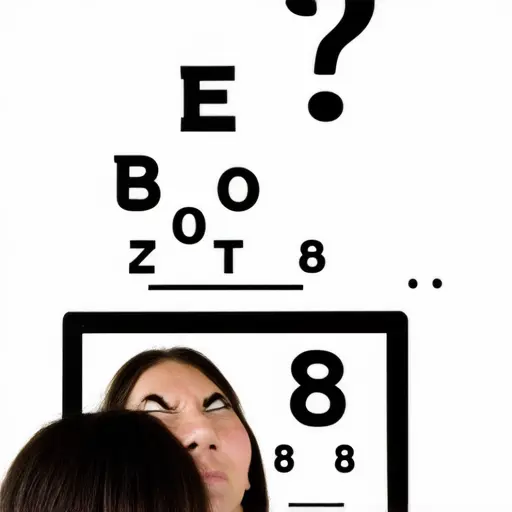A program so powerful, it’s designed to improve perfect eye health and give anyone who uses it crystal clear 20/20 vision in a matter of weeks.
Short Sightedness Improve With Age: Myth or Reality?

Does Short-Sightedness Really Improve With Age? The Eye-Opening Truth
Ever noticed your vision changing as you get older and wondered - could my short-sightedness actually be improving? You're not alone. Many of my patients ask me this question, especially when they start needing reading glasses but suddenly find their distance vision seems clearer. Let's clear up the confusion.
As an optometrist with over a decade of experience, I've seen firsthand how aging affects vision. While some lucky folks do experience changes that make them think their myopia is getting better, the reality is more nuanced than that. Grab your favorite beverage (and maybe your glasses), and let's dive in.
Myopia 101: Why Distant Objects Look Blurry
Imagine your eye is like a camera that can't quite focus properly on faraway subjects. That's essentially what happens with short-sightedness (or myopia, if we're being fancy). Either your eyeball grew a bit too long or your cornea got a tad too curved during childhood, causing light to land just short of your retina. The result? Blurry street signs but crystal-clear phone screens.
The Big Myth: "My Eyes Will Fix Themselves After 40"
Let's bust some common myths I hear in my clinic every week:
The Natural Ultra Absorbable Dropper That Supports Strong Vision

Inside every drop of "EyeFortin" you'll find: A perfectly dosed proprietary blend of selected plants and minerals, carefully mixed to complement one another into a powerful vision supporting formula.
Watch now- "Turning 40 magically fixes nearsightedness." Nope - that's your presbyopia kicking in (more on that later).
- "Wearing glasses makes your eyes lazy." That's like saying using crutches makes your legs weaker!
- "Eye yoga can cure myopia." If only it were that simple - I'd be out of a job!
The Science Behind Aging Eyes
Here's what actually happens to your vision as you get older:
Your Eye's Natural Lens Gets Stiff
Remember how flexible you were as a kid? Your eye lens was too. Around age 40, that lens starts hardening like day-old bread, making it tougher to focus up close (hello, reading glasses!). This is presbyopia - and it affects everyone eventually.
The Presbyopia-Myopia Balancing Act
Here's where things get interesting. If you're slightly nearsighted (-1.00 to -2.00), taking off your distance glasses might suddenly help you read the menu. This "second sight" phenomenon tricks many into thinking their myopia improved, when really it's just two vision problems temporarily canceling each other out.
A patient of mine, Sarah, came in thrilled she could suddenly read without glasses at 45. After testing, we discovered her distance prescription hadn't changed - her new presbyopia just compensated for her mild myopia when reading. She left with bifocals instead of good news about "improved" vision.
Do THIS 7-Second Trick Tonight, Restore Perfect 20/20 Vision Tomorrow

VisiSoothe - Vision Breakthrough
Try this at homeWhen Might Myopia Actually Improve?
While true improvement is rare, these scenarios can cause temporary changes:
- Cataracts: They can shift your prescription, sometimes making you temporarily less nearsighted (but blurrier overall)
- Pregnancy/hormonal changes: Some women notice vision fluctuations (usually temporary)
- Diabetes: Blood sugar changes can alter your prescription (a good reason for regular eye exams!)
Smart Strategies for Aging Eyes
Instead of hoping for magical improvement, try these eye-healthy habits:
The 20-20-20 Rule (Your Eyes Will Thank You)
Every 20 minutes, look 20 feet away for 20 seconds. It's like a mini-vacation for your eye muscles after staring at screens all day.
Nutrition Matters
Load up on leafy greens (for lutein), fatty fish (omega-3s), and colorful veggies (antioxidants). Your retinas will feast on these nutrients.
Surgical Options
From LASIK to lens implants, modern procedures can correct myopia beautifully - though they won't stop presbyopia from arriving right on schedule around 40.
The Bottom Line
While your myopia prescription might stabilize in your 20s-30s, don't count on aging to reverse it. What feels like improvement is usually just your eyes' natural changes playing tricks on you.
Pro Tip: Get a comprehensive eye exam yearly after 40. We can spot real changes versus temporary fluctuations and keep your vision crisp at all distances.
Have you experienced the "my vision got better after 40" phenomenon? I'd love to hear your story in the comments - and I'm happy to answer any questions about your changing vision!
Dr. Emily Sanders, OD
Optometrist & Myopia Specialist










